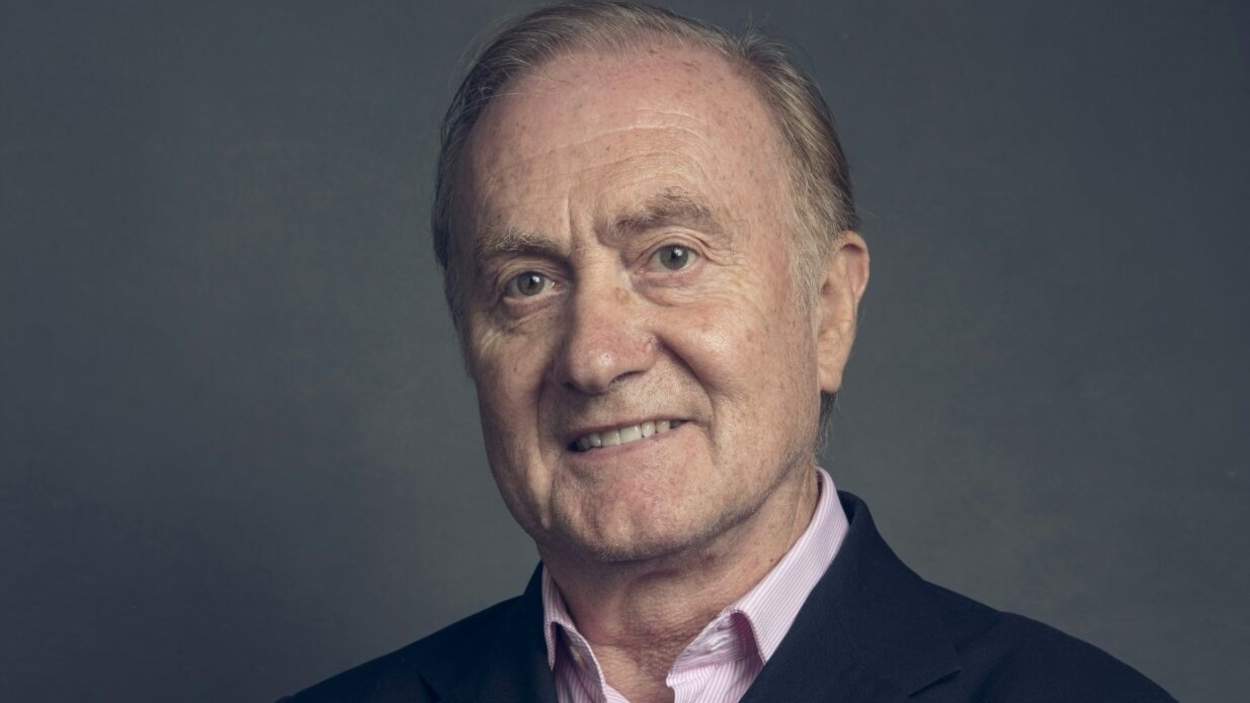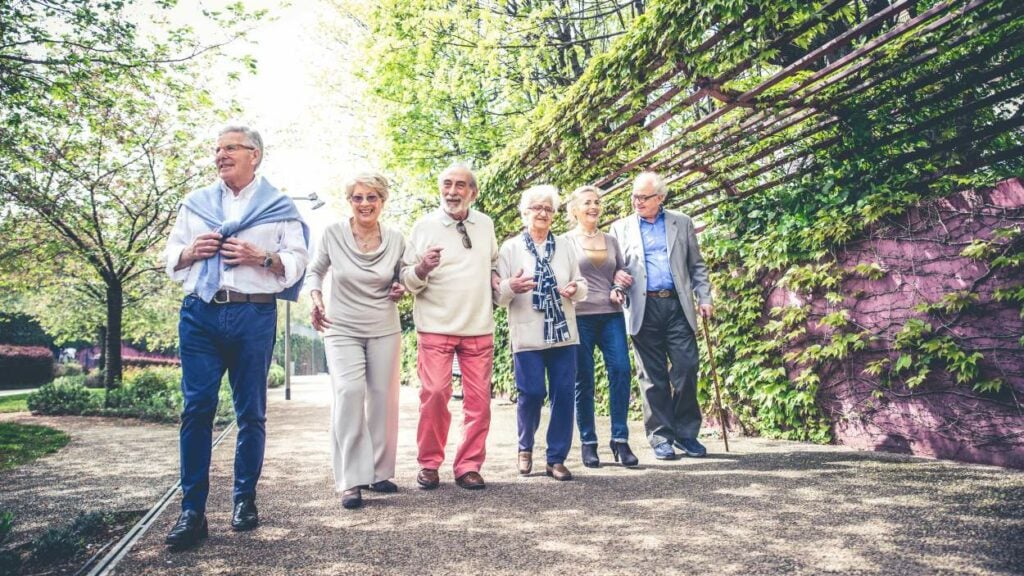Ageing Science and Wellbeing: Translating Scientific Research into Tangible Social Benefits

Professor James Goodwin is the Chief Scientist for Age UK and is its resident expert on all issues of ageing science and research into later life. We talked to him about creating the pioneering Wellbeing Index and the importance of translating scientific research into tangible benefits for society.
How did you get into ageing science, and what attracted you to it?
My PhD was on the physiology and effects of cold on older people at Exeter University’s Postgraduate Medical School, and I then spent 15 years in universities as a researcher and lecturer.
In 2001, I was asked if I’d be interested in applying to be the first ever head of research at Help The Aged, which has now been superseded by Age UK.
When I asked the executive director why they picked me, he said, “We thought you’d you get on better with people than anyone else.” That taught me a real lesson – because it wasn’t just about what I knew and about how good I was at research and science, it was how I could talk to and relate to people.
You see that so often in science: scientists who are isolated in their academic world, doing great work, but can’t communicate or relate to people. To me, ageing science is about telling us more about the human condition – but the results of it downstream are what is going make life better for people – and that’s really what matters to me.
What areas does ageing science cover?
Ageing science is everything from cellular biology, right the way to the natural sciences, through to the STEM subjects, technology, engineering, and then the social sciences, behavioural sciences and social policy which relates to ageing.
The pure science of ageing would be what is going on in the cells to make us older. But of course, that’s only part of the picture, because although ageing is about a process in the body, it also has other huge dimensions around society, human relationships, health, inequalities and economics – and all of it is vitally important.
"It’s not just about new research; it’s about having all this knowledge now and asking – what are we doing with it and how are we using it? What does it mean? What are the messages? And getting people to listen."
Professor James Goodwin
How necessary is a bridge between science and its real-world implications?
I think it’s very necessary. I’m also a research impact assessor for one of the big funding agencies, which gives the universities 25 per cent of their research money. And every seven years, universities are assessed on the quality of that research, and from 2014 onwards they had to show that it made a difference.
I helped to put together that evaluation in 2014 – so I know pretty much the best ways of making research do some work and produce tangible benefits for people.
That’s also due to working in a charity, where we have a charitable and an educational mission, to improve later life. Age UK’s strapline is “Love later life”. But we’re there to improve all aspects of people’s later life; health and wellbeing, income and social environment. It’s a big agenda.
Public understanding of science is still woeful though – despite 3000 new science papers being published every day – and we are yet to see much of the science translated into benefits.
It is a complicated picture. You don’t just suddenly discover something, and then the next day it’s out in the wider economy. But we’re lucky to live in a liberal democracy where there’s an openness to think anything and say anything. One big reason we’re ahead of the game in developed economies is because science has changed the way in which we think of the way in which we do things.
What impact has your research on wellbeing had?
The idea of wellbeing rose in profile largely because of something the Dragon King of Bhutan said in 1973, which was, “I’m not having the status of my nation judged by its GDP; it’s about whether we’re happy or not.”
"One of the leading ideas of the last ten years that has changed our approach to health and wellbeing in older people is how important social capital and social connectedness is."
Professor James Goodwin
He created this idea of ‘national happiness’ – and the idea really caught on! The UK government commissioned a study on national wellbeing, the ONS was commissioned to ask questions about the happiness of people, the WHO and the UN got a hold of it, and soon everyone started to use it as a measure.
However, Age UK was one of the early thinkers and movers in promoting the concept of well being in older people. Our work came with a commission from Lord Filkin, then chairman of the new Centre for Better Ageing.
The Cabinet Office was interested in identifying what worked for the social policy so that the government’s ideas and policies could make a difference. Lord Filkin came to Age UK and asked us to look at wellbeing. So we produced a report on what was known about wellbeing in older people.
It’s difficult to define wellbeing; people shy away from it. But we now know what contributes to wellbeing because of a second piece of research we did. My brilliant research team at Age UK, notably Phil Rossall and Marcus Green, came up with the idea of a wellbeing index for older people.
Most people said that you couldn’t capture wellbeing in a single number. We disagreed with them, conducted the research, and came to the conclusion that it could.
So we set up a study to look at it in later life and found that there were over 200 factors said to be important to wellbeing. Then we did a deep dive, taking a rigorous and systematic look at it; we talked to experts in the field, to older people, we read all the scientific literature and then carried out statistical analysis on a huge data set.
It was called ‘Understanding Society’, run by the University of Essex, who interview 50,000 people, 15,000 over the age of 65, periodically. It’s a massive enterprise.
We worked the numbers, and our maths showed there were 40 statistically significant factors contributing to wellbeing. So that’s the most significant piece of research we’ve done on wellbeing, and that index we use all the time.
Which is the most prominent factor for wellbeing in later life?
Of those 40 factors, the single factor that had the biggest effect on wellbeing was a surprise: it was cultural participation. It’s not just being with friends, going out or being mobile. It’s something about art, music, literature, theatre, opera, ballet, cinema, something about it is really good for you. And then there are other interesting ones; education was in the top 10 – as was social participation.
Can we deduce from that that people need to feel valued and connected?
I think one of the leading ideas of the last ten years that has changed our approach to health and wellbeing in older people is how significant social capital and social connectedness is.
I was involved in the setting up of the Age-Friendly Cities movement in 2006. Now, that was a revolutionary idea, because it laid out the solutions to problems such as loneliness, marginalisation, poor social wealth and poor connectedness. Age-Friendly Cities wanted to improve the environment to help people to get out and meet people.
The biggest issue that has come out of that wellbeing research is that we now know that over 50% of health outcomes in later life depend on social factors.

If you go to a medical school though and ask, “How much are they teaching healthcare professionals about the importance of social factors?” the answer is very little.
Doctors in training probably get less than 100 hours of exposure to the older person in five years – and yet we know that when a GP sees patients, up to half of them are over the age of 65.
What for you are the most important areas of research in later life at the moment?
About five years ago I was at the 40th birthday of the National Institute of Ageing (NIA), and the heads of research were also there. Someone asked the head of social and behavioural science, “What about the next 40 years? Where do you see the biggest impacts being made?” And she replied, “Social epigenetics”.
In other words, geneticists, working with social scientists to find out why a poor social environment affects your health through to the way in which genes operate in the body. If you are lonely all the time, why is that? What are the missing steps between your health breaking down and the onset of loneliness? That’s a really fascinating area.
The second big area for me is not so much research, but research translation. How does all this knowledge actually make a difference?
Britain is the first country in the world to have a Minister for Loneliness. We have worked with the Campaign to End Loneliness and other charities to conduct a full-on campaign – and that resulted in a ministerial appointment late last year.
So it’s not just about new research, it’s about having all this new knowledge now and asking what are we doing with it and how are we using it? What does it mean? What are the messages?” and getting people to listen. It takes a long time. In the world of politics, evidence is sometimes the last thing you want to hear.
This interview was part of a series brought to you by Elder. Whether your are looking for London live-in care or require assistance in another part of the country, Elder will ensure that all of your care needs are taken care of.
Read our latest interviews
Browse our latest interviews, and research on elderly living, from leading national experts.